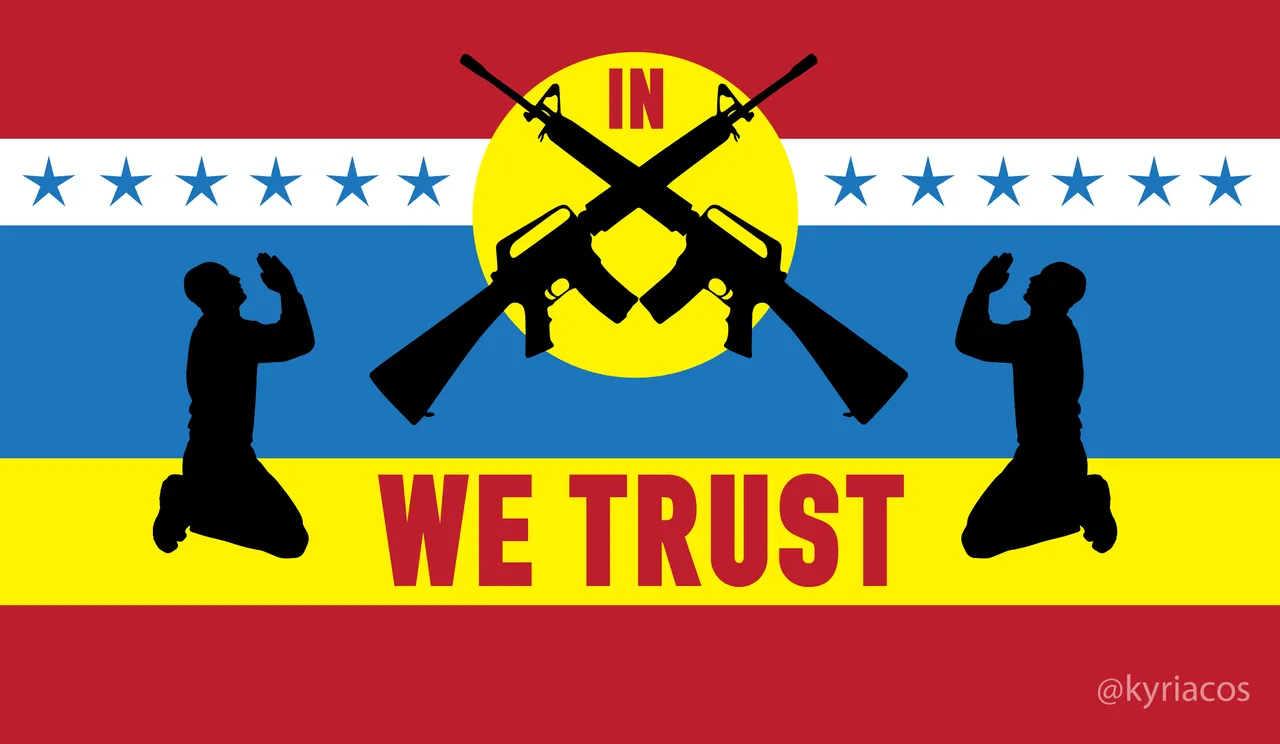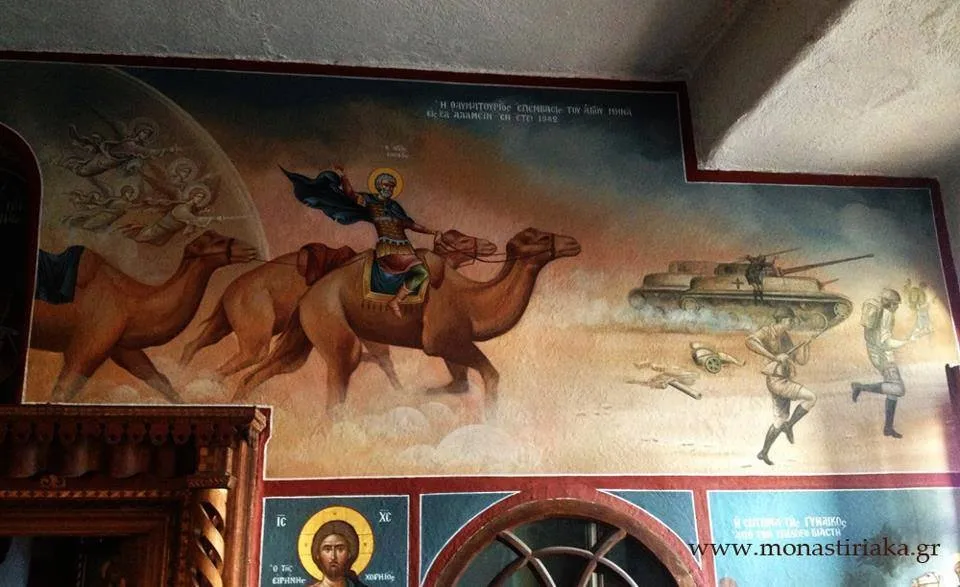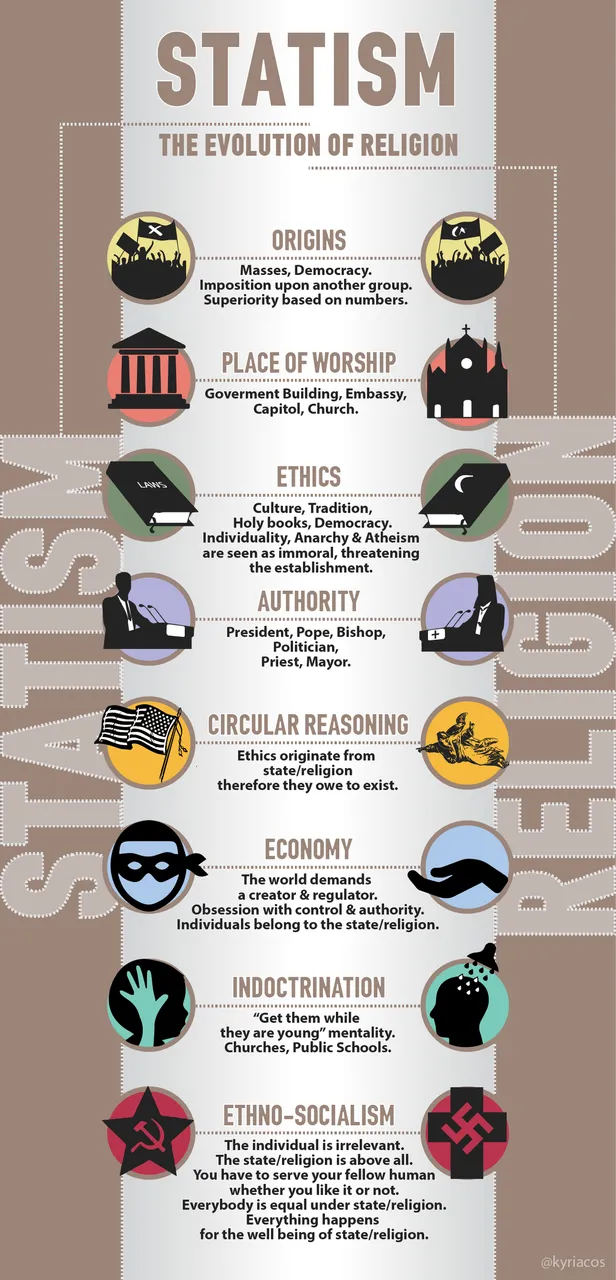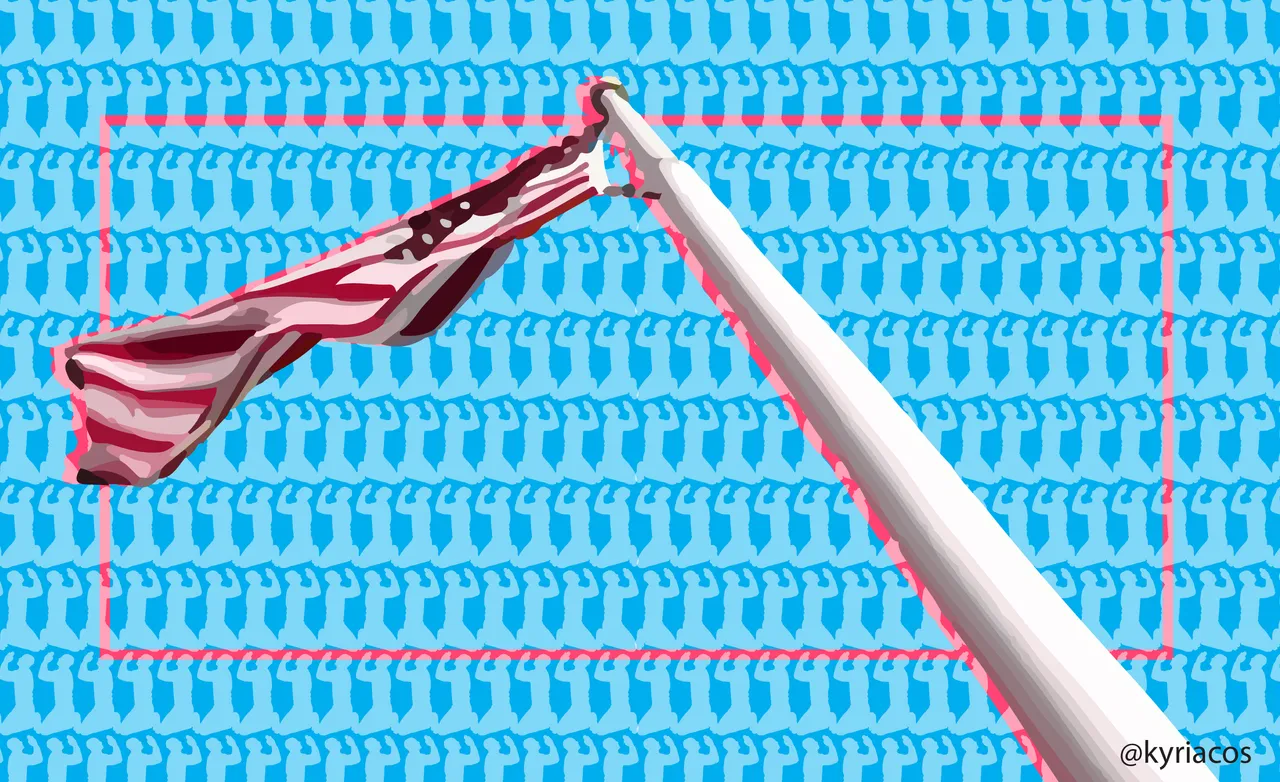
Statism is defined as the manifestation of a given political system in which the state has almost absolute centralized control over social and economic affairs. All countries on the face of this planet are statist in some degree or another. The term often pops-up among individuals that oppose state authority and those that uphold individual liberty as the ultimate moral virtue.
The Origins
In order to examine how Statism emerged, we need to investigate how humans were organised before the notion of the State. As early as 450.000 years ago, humans used to roam the earth as Nomads without having a sense of property. More or less we were much like the rest of the animals. Things changed about 12.000 years ago when we started making small local establishments. The first states were formed along with the first religions among people who shared common ideas.Contrary to common belief, gods are not required in the recipe for religion. Religion is rather a generic concept that emerged out of people’s stories in an effort to sculpt a communal code of behaviour. At first it evolved slowly and sporadically, taking flesh and bone through the common daily practises of local tribes such as animal sacrifices, dancing and food rituals.
Practises gave birth to a code of behaviour that enabled the administration of a given geographical area from its inhabitants. The code of behaviour, combined with plenty of superstition about the world, gave rise to the first draft of the state-religion.
Early state-religions were formed around the worship of natural elements. They often occupied specific areas like lakes, forests, and caves due to the provision of livelihood those resources offered. The mysterious way nature was providing gave rise first to the worship of the water, fire, forests and mountains. This is afterall why early gods embodied natural elements.
Later on, animals were worshipped as Gods. This gave birth to polytheist pantheons such as those of Hinduism and Ancient Egypt. Monotheism emerged only recently over a couple thousands of years when the first Jews fled from Egypt. The first priest of monotheism, Moses, was serving the Egyptian Pantheon when he decided to leave it (Exodus) leading his own religion focusing on one God. Christianity and later Islam established their violent dominion on earth based on the idea of the one true God while the rest of the deities remained lesser gods (angels). Constantine around 325 A.C.E. established the first state-religion after organising Christianity. Byzantium was the first Empire that gave birth to statism. It embodied a deep sanctity for the Empire that was framed under strong religious belief.

For thousands of years cultures around the world had religion and state intertwined one way or another since both supplied security and purpose for daily life. The moral code shaped the first religious archetypes. The kings and queens depended on religious advisors to rule. In many cases, such as in Ancient Egypt the ruler was divinely chosen. In other cases, such as recently in Imperial Japan, the Emperor was considered a God himself.
As state conquests where taking place on the planet, larger state-religions absorbed the practices and beliefs of smaller cults. For example the Christian tradition of holy communion (drinking Christ’s blood in the form of wine and eating his flesh in the form of bread) was first followed from cults of Mesopotamia who required the consumption of real human blood and flesh in order to establish a religious rank.
All religions that ever existed are an amalgamation of different practices that evolved along the occupations of the different state-religions. The most popular religions that remain until today on this earth are also the most violent historically in regards to how they were propagated through their respective State (Hinduism, Buddhism, Judaism, Christianity and Islam).
The aftermath
This is how the statism we know today came to be. The parallels in daily life are extremely similar until this day. In religion for example, a god is the creator and ruler of all things with presidents and governors being the intermediaries. Religion rules what some people call as the “spiritual” while the state rules the tanginble. This is why they are so often presented to be intertwined in social affairs. Many presidents and political candidates use their belief in God as a currency for their morality. In essence, both the ideas of “God” and “Government” are fictional invented from some men (priests and politicians). One cannot touch God or the Government but rather experience it through beliefs and practices. Both need to be imprinted in the human mind from a young age in order for them to flourish as reality.
But really, what is statism beyond the superficial government buildings and absurd regulations? What lies beneath the labyrinth of flying papers, lost energy and time that freezes human action while filling it with paranoia? What lies beyond old books and manuscripts that require faith rather than evidence?
Kafka investigates the workings of the state by taking apart bureaucracy which functions as the fuel for statism. Through his work The Castle he examines how the state-religion works to fulfill its own existence, trapping the individual into a void of pointless action, removing his will while constituting him defenceless to the whims of the pastor-politicians. The citizens accept their fate and then attach themselves to the state-religion like leeches, surrendering their spirit with solemn devotion. The grandeur of power through armed men ready to defend and protect creates unshakable faith. No wonder we see so many soldiers with religious books in their hands.
This blind belief eliminates any form of individuality, creating subjects that police each other through fear and conformity. After all, this is how people get to die for a piece of land that is owned by people in funny costumes

The bureaucrats, or rather the prophets of the state-religion, present their laws much like commandments which they rarely follow but expect others to do so. The individual accepts the laws as de-facto ethical quote without questioning their origins and purpose. Public education brainwashes certain values to citizens from an early age so that questioning any of the state-religion axioms can alienate the individual from the tribe. Citizens grow up as wax statuettes ready to be carved by the whims of the state.
All actions supposedly happen for citizen’s own good. The state functions as the protective creator, a father figure, ready to guide the defenceless and irresponsible child to the truth—his salvation. This action is often translated as sacrifice either indirectly through the legal and tax system or directly with a weapon in one’s hand.
Feeding The Machine
The mechanism of Statism relies on the self affirmation of the State as the ultimate totem of human worship. It’s dogma works to re-assure the existence of itself through violence and coercion. Without violence all the pieces of paper, all the national stamps and fancy signatures would have as much value as a used toilet paper. Special permissions are required for every human action, from marriage to opening a business. Everything needs to have a stamped blessing.The absurdity is summed up with the idea that humans cannot be trusted, cannot govern themselves so they have to elect other special humans to guide them...
This is, perhaps, the greatest weapon of statism. It reinforces apathy and stupidity. Much like all religions the believer just has to be present in some events and follow from time to time some practices in order to conform. People become sheep, heavily dependent on their leaders. They are ready to accept the world around them based on blind faith. This is how war and mass violence becomes publicly acceptable as a necessary evil.

Most Statists like to lie to themselves that they are free while they serve the state. This is after all why the motto “The Land of the Free” is so popular in America. Most people are not free or untamed but rather hopelessly enslaved by a never-ending need to be constantly accepted by the tribe. This has been true since the dawn of human civilization.
Is There Any Hope?
Culture by nature creates inherited superstitions. Whether these deal with deities living in the sky or here on the ground it remains irrelevant. A state official, pushing buttons, being entrusted with the well-being of millions is much like a God that can control with one move the future of his subjects. Illusions such as nationalism and statism serve as emotional fairytales that diffuse the will of the individual surrendering it to the group, much like it happens with wild animals.Friedrich Nietzsche emphasizes in his Book Thus Spoke Zarathustra how the individual gets ostracized from the tribe for lack of conformity—or rather the lack of ability to be willingly an idiot, shallow and gullible like the rest.
Statism is unlikely to cease being popular anytime soon. Monopolies that are carefully crafted by the state depend on maintaining human sheep. Functions like working 8-5, paying taxes and attending public school establish a solid basis for conformity. Any diversions can be quickly repaired with the appropriate pill. The system, unable to fix itself, regulates and changes the subjects either with physical force or manipulation.
Mind slavery is the hardest prison of all to escape from because up and foremost it demands bravery and open revolt. Any questioning of the system creates schisms among peers, alienating the inquisitor perhaps forever and branding them as “different”. In much the same way, a religious person obeys his own absolute truth and rejects everything that challenges those ideas. Statism will most likely continue preserving itself at the expense of individual liberty for years to come. Our only hope for the near future is the internet and more specifically decentralised technologies that liberate individuals from their own prison.
Remember. A system never changes because of a revolution or education. A system only changes when a new one, a much more efficient one, replaces the old. We are witnessing this transition over the last decade or so and we can only dream to live it in its full potential.
